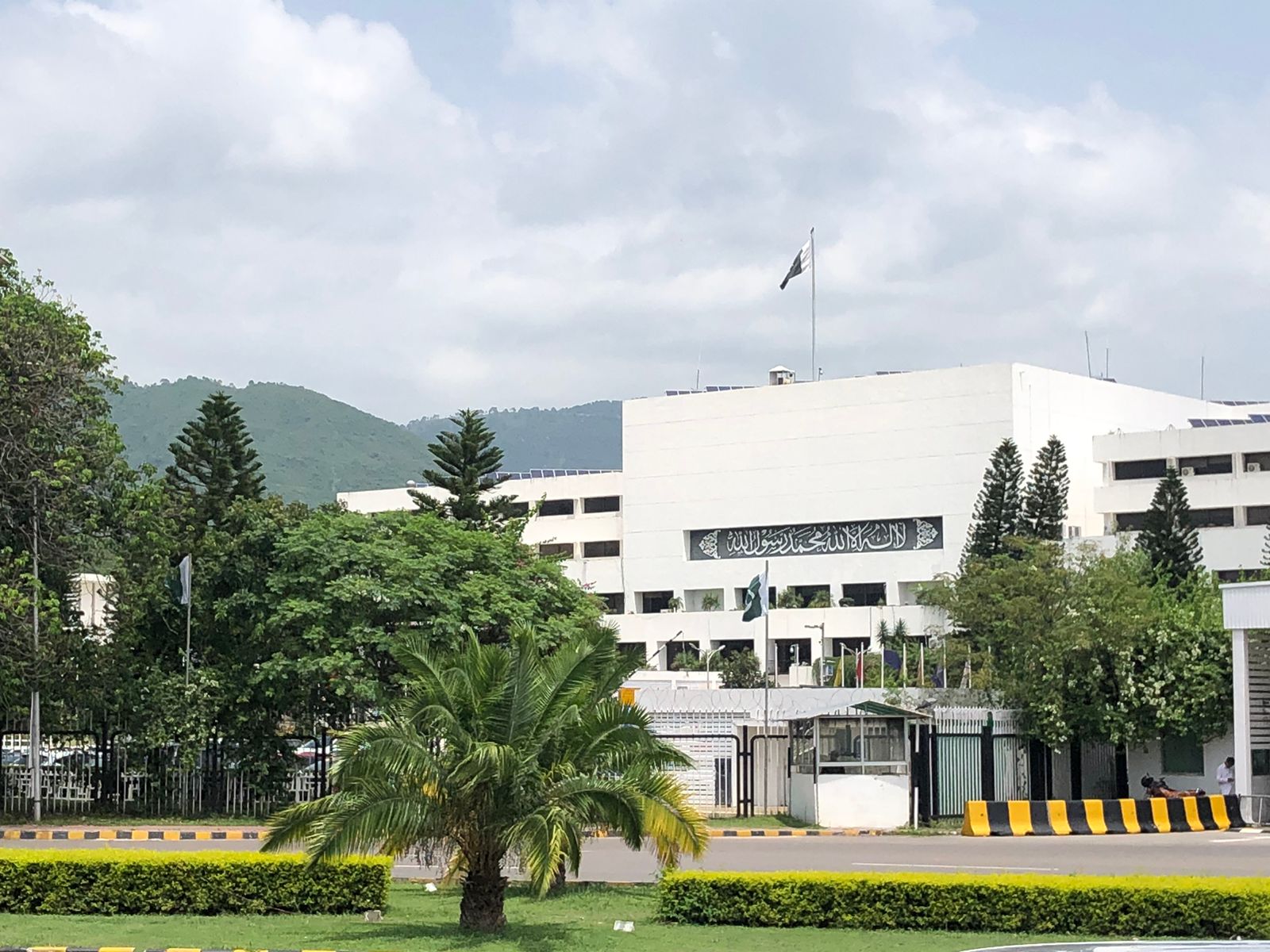Alumni Voices
The dignity of legislation

National Assembly of Pakistan , Aug 2023
© Friedrich Naumann Foundation for Freedom - Pakistan / Rebea Firdous"It is good for me that I have been afflicted, that I may learn Your statutes."
PSALM 119:71
We live in a legislation-state, which is a form of state devoted to the business of making continual improvements in the life of the community by parliamentary legislation. Legislation through parliamentary debate and deliberation is a recognised source and a genuine form of law and an integral feature of democracy. The absence of meaningful debate in our parliament, however, earns a bad name for this state and dilutes the democratic authority it claims, as well as the demands it makes on other state actors and fellow citizens.
In Pakistan, for example, the legislature violated the dignity of legislation while attempting to pass the Prevention of Violent Extremism Act 2023 (targeting political activities and the freedom of expression) and the Officials Secret Act (authorising the search of any person or place without a judicial warrant) ( which was subsequently dropped in the Senate). In another round, the National Assembly passed bills for setting up 24 new universities in a single sitting - without any discussion or consultation with relevant stakeholders. With such actions it has made legislation a process of deal-making, horse-trading, log-rolling, and special interest-pandering—anything, indeed, except principled political deliberation and decision-making.
Our legislature cannot make laws violating the human rights protected under the UN conventions without violating our own treaty obligations.
An Islamic conception of democracy highlights the importance of consultation in governance. Under the Western concept of democracy, representatives of the community come together to settle solemnly and explicitly on common schemes and measures that can stand in the name of them all; and they do so in a way that openly acknowledges and respects the inevitable differences of opinion amongst them.
However, the process of legislation in our country often offends the basic features and principles of democracy and constitutionalism such as deliberation, respectful opposition, and the sanctity of fundamental rights. Haste in law-making makes a mockery of consultative, or indeed representative, governance.
In a democratic dispensation, the constitution remains supreme. The legislature cannot make laws violating the civil rights and liberties of the citizens. Any attempt to restrict such rights and freedoms has to be reasonable, proportional to a specific and explicit need, and subject to judicial review. The constitutional doctrine of separation of powers ensures that all institutions must exercise their powers within the limits prescribed under the Constitution.
Political parties are under the control of a few individuals or families; they lack democracy within their own ranks.
The prevailing trend of lawmaking without deliberation or proper scrutiny in Pakistan poses a serious threat to consultation, constitutionalism, and the rule of law. Elected representatives often proceed as authoritarian leaders. Indeed, the state is undergoing a phase of elite capture whereby vested interests trample on constitutional principles and the public interest. Political parties are under the control of a few individuals or families; they lack democracy within their ranks even as they pander to a narrow set of wealthy and powerful friends. State institutions such as the Election Commission of Pakistan are weak and fail to ensure the conduct of free and fair elections. The failure of parliamentarians in legislation and governance creates vacuum allowing other institutions to play proactive role.
In the comity of nations, however, no state can retain a dignified place without protecting forms of consultative governance, transparency, constitutionalism, and the rule of law with respect to its legislative processes. The rule of law is promoted when a state respects
(a) the inalienable rights of every citizen as well as
(b) enforceable laws promulgated by representative governments.
Without this combination of universal rights, elected government, and enforceable legislation, tyranny can be imposed on the people through bad laws as happened in Nazi Germany. The life and liberties of each individual cannot be taken away through black laws and unconstitutional measures.
Seeing the atrocities associated with the draconian laws in Nazi Germany, the vast majority of the world's countries committed themselves to protecting basic human rights after World War II (1939-1945). This led to the proclamation of the Universal Declaration of Human Rights, 1948 (UDHR). The UDHR has acquired the status of customary international law. Pakistan has further ratified the (legally binding) International Covenant on Civil and Political Rights, 1966, as well as the International Covenant on Economic, Social and Cultural Rights, 1976. Thus, our legislature cannot make laws violating the human rights protected under the UN conventions without violating our own treaty obligations. In any case, our legislature does not have an unfettered power of legislation under the cover of majority rule. A constitutional state cannot allow the tyranny of the majority, an unconstitutional rule, and the stifling of basic human rights through repressive laws.
Rule of Law as the guiding principle of legislation and democracy
To protect the dignity of legislation, our legislature must ensure that its legislation respects international human rights law as well as our constitution. Further, any law-making process that is devoid of debate and the voice of the people is undignified and weakens the state. An effort should be made to educate our parliamentarians and policymakers as to the importance of democracy, deliberation, transparency, fundamental rights, and the rule of law for the political and economic stability of our country. The judiciary must commit itself to reviewing unconstitutional legislation that threatens the rule of law and the fundamental rights of our citizens.
'Alumni Voices' is a series of articles written by Pakistani professionals from different walks of life on their perspective on current affairs of the country. The views expressed in this article do not necessarily represent the views of the Friedrich Naumann Foundation for Freedom.
